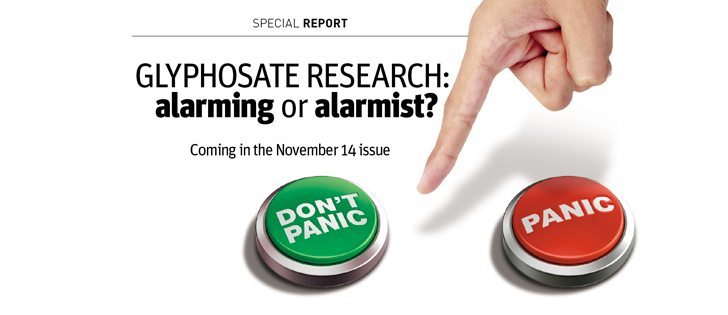Since the advent of Roundup Ready crops, glyphosate use has soared in North America, Australia and South America.
It is a critical part of most farmers’ toolkit.
But its popularity has caused problems.
Where is it is overused is has led to a growing horde of resistant weeds.
Also, glyphosate’s status as the king of herbicides and its relationship with genetically modified crops are provoking a backlash from environmental activists and anti-biotech campaigners.
Given glyphosate’s popularity among the vast majority of farmers, its future would seem assured.
Read Also

Phosphate prices to remain high
Phosphate prices are expected to remain elevated, according to Mosaic’s president.
But considering the mounting hostility, there’s no guarantee that it will be around for the long run. Note the experience of neonicotinoids, which were introduced in Europe but now have been banned there because of fears that they are damaging bees.
In the livestock sector, practices that were common and viewed as beneficial for animal welfare are now being banned because of public campaigns.
Western Producer reporter Robert Arnason has produced a special report that examines the debate around glyphosate, which has been called the Once in a Century Herbicide because of its effectiveness, low environmental impact and relatively benign toxicity in humans when used as directed.
The debate is easy to find. A simple Google search for glyphosate turns up thousands of hits, many of them quoting a small band of researchers and activists who argue the chemical is not safe and jeopardizes human, plant and soil health.
Papers produced by French researcher Gilles Seralini and American Massachusetts Institute of Technology professor Stephanie Seneff argue glyphosate use can lead to disease in animals and humans. Critics say the papers are pseudoscience, but they get wide exposure in social media and websites, especially those that are critical of GM crops.
Scientific papers and studies that indicate the safety of glyphosate get much less attention.
The debate is sure to continue.
Read about it in the special report in the Nov. 14 edition of The Western Producer.















